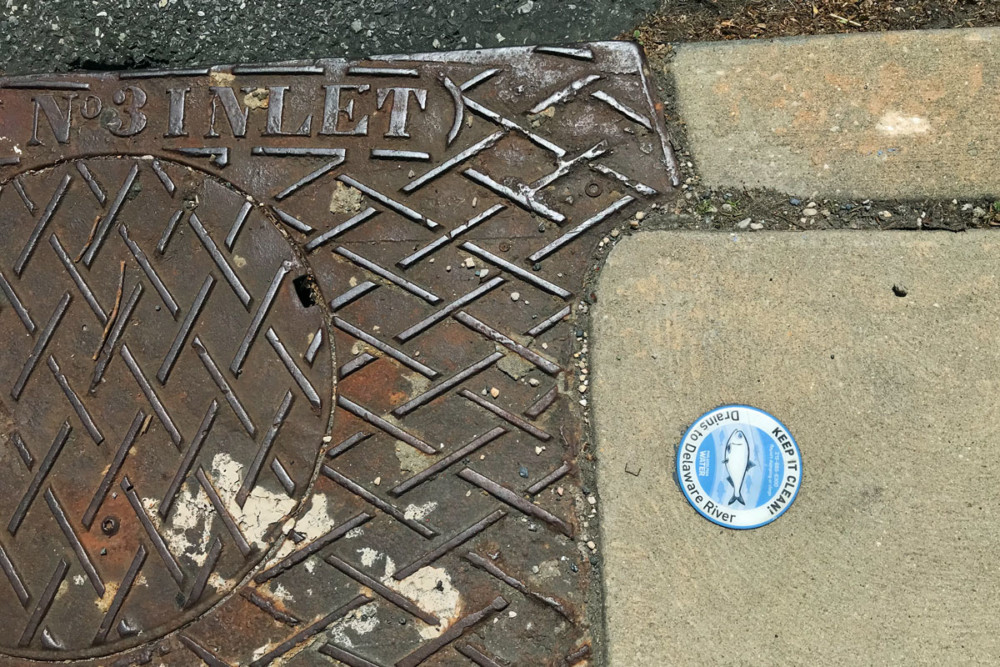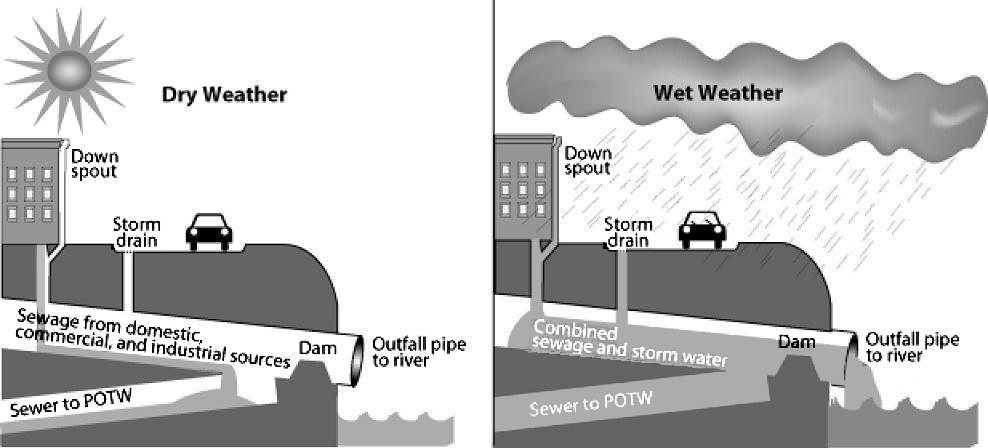
Eco-Explainer: What are Combined Sewer Systems?
As climate change brings hotter and wetter weather to Philly, it can strain our waterways due to our archaic systems. Here’s why.
Like many major cities across the country, Philly uses a Combined Sewage System to prevent localized flooding in streets and water treatment plants.
With climate change causing warmer climates and an increase in heavy rainfall, these systems can lead to the destruction of natural habitats, unsafe waterways for recreation, and lower water quality in nearby rivers and creeks.
So, what is a Combined Sewer (Overflow (CSO)?
A Combined Sewer System is designed to collected stormwater, sewage, and industrial wastewater into a single pipeline, guiding all of it towards water treatment plants. More than three-quarters of the city use combined sewer systems; including neighborhoods of Center City, South Philadelphia, East Mt. Airy/Germantown and North Philadelphia.
During dry weather, the city can treat all of the sanitary sewage at wastewater treatment plants.
When heavy rainfall occurs, the EPA permits Philadelphia Water (PWD) to release the surplus (or “overflow”) of stormwater into local waterways like streams and rivers. These combined sewer overflows (CSOs), means that human and industrial waste, pollution and water all of the chemicals that residents discard on the streets (including trash, gas, oil, and antifreeze) can go directly into the river.

U.S. Environmental Protection Agency, Washington, D.C.
More than 13 million people get their drinking water from the Delaware Watershed. With 164 combined sewer outfalls along the Delaware and Schuylkill rivers, this waterway can receive all that raw sewage and pollutants during heavy rainfalls.
How does Climate Change play a role in our sewers?
Climate change causes warmer, humid weather that will generate more intense rainstorms, leading to more dumping of untreated sewage into our rivers and streams. According to the Philadelphia Inquirer, CSO’s generated 12.5 billion gallons of sewage and stormwater into the city’s nearby waterways from July 2017 to June 2018. The CSO at Frankford Creek (CSO T14) alone are recorded to dump more than 40 million gallons of water into the creek during heavy rainfall.
When traveling towards Philadelphia’s waterways, PWD states that the city’s impenetrable surfaces are unable to absorb any stormwater. The mixture is dumped into water bodies, the sewage and stormwater combination creates impossible living conditions for plants and wildlife, and it deteriorates the natural landscape while creating more invasive species.
It’s apparent that the combined sewer system creates a paradox of flooding. While trying to maintain the additional sewage and stormwater entering water treatment plants, the dumping of this mixture into rivers and streams causes the swelling of water bodies and the flooding into urban areas and homes.
Green City, Clean Waters: Philadelphia Water Department ‘s solution
Rather than reconstructing our pipes, the city had a more sustainable solution to this dilemma.
In 2011, the PWD created its “Green City, Clean Waters” program, a 25-year-plan for more sustainable stormwater infrastructure with rain gardens, stream cleanouts, and rain-barrels. These projects are designed to absorb stormwater runoff, decreasing the flooding of CSO’s into the city’s streams and rivers.
Learn more about PWD’s Land-Based Green projects, which are aimed at reducing sewage overflows. From launching stormwater planters at Columbus Square to implementing green stormwater infrastructure in schools across the Greater Philadelphia area, PWD’s plans involve numerous locations across the city.









